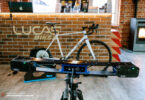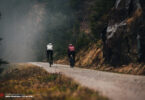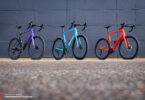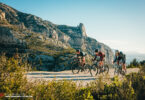What makes a true champion, what are sporting achievements and money really worth, and why is it so important to have the courage to change? We met up with road bike rock star Peter Sagan and MTB prodigy Martín Vidaurre in Chile to talk about personal fulfilment, being a child, finding the right balance, and making life-changing decisions.
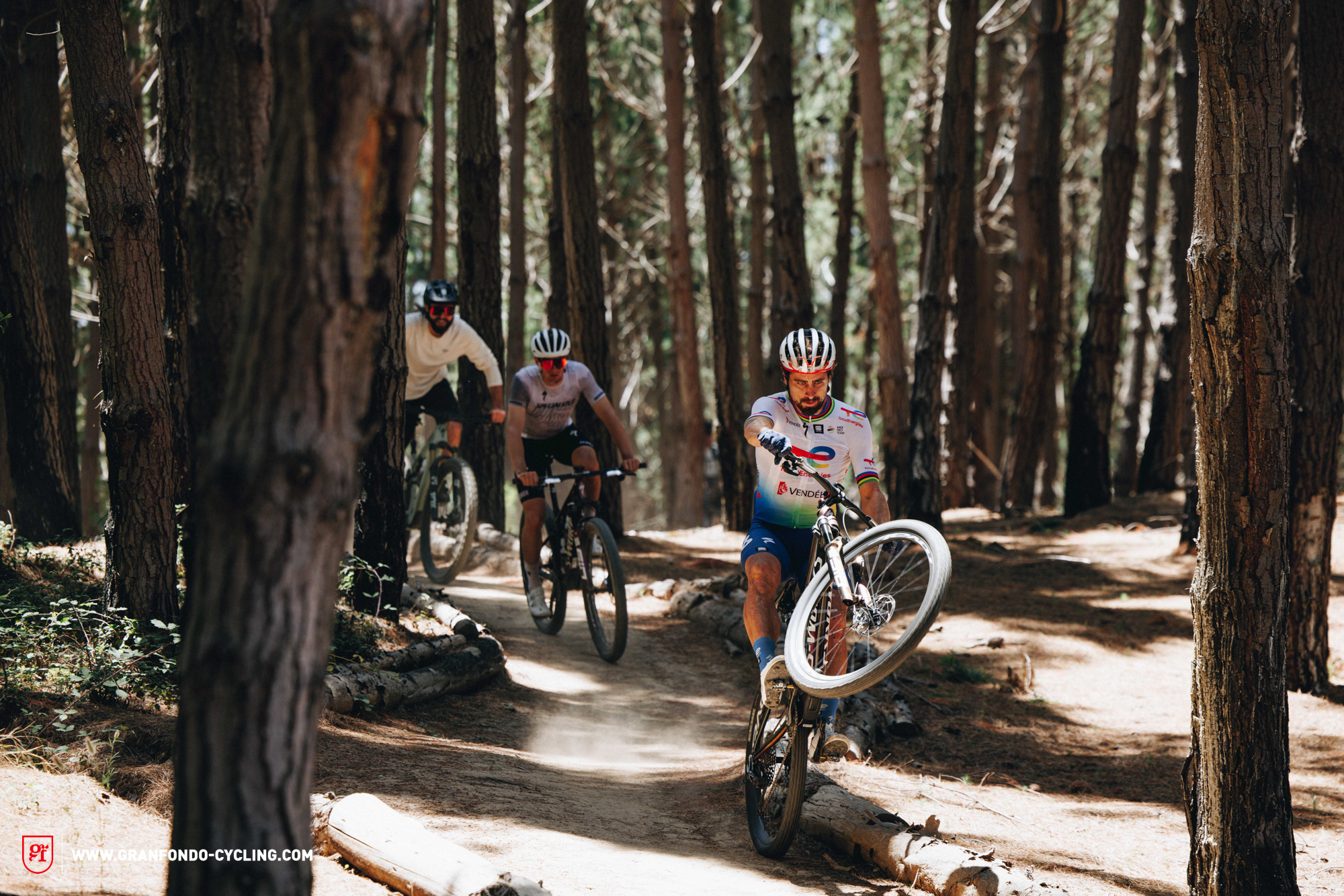
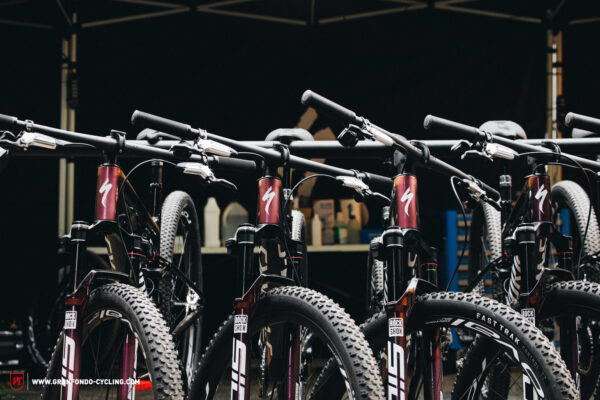
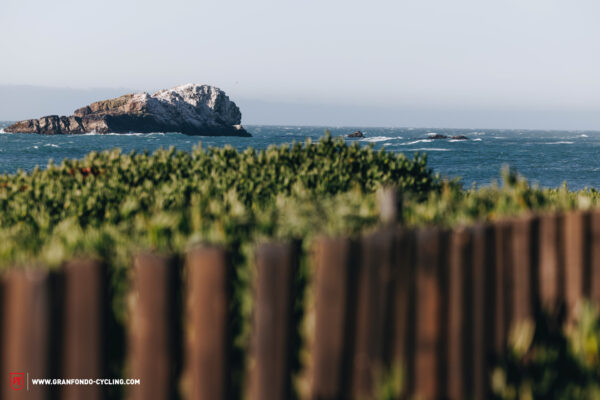
Huff, huff, grunt! We just ate like kings. And now I’m on a training ride with a full stomach? And not just any training ride, but with Peter Sagan and his Chilean teammate and national hero Martín Vidaurre. For those who don’t know him: the 24-year-old Martín won 8 out of 9 XCO World Cup races in 2022 in his last season as a U23 racer, and also won the 2021 U23 XCO World Championship. Just stay on them, I think, and ask myself if this was another one of those dumb ideas. Just like when Paul Ripke and I rode 200 km into the desert from LA to Palm Springs in the midst of an extreme heat wave with sauna temperatures?
This time, I actually “just” wanted to do an interview with Peter Sagan. Nobody told me that this would become so much more – and I couldn’t have foreseen it. Suddenly, they were like, “Come with us on our training ride. We’re doing some easy base training.” Easy… yeah, right – maybe for you ;). When two of the world’s best athletes do base training, for mere mortals like me that means going to the absolute maximum. Limit.
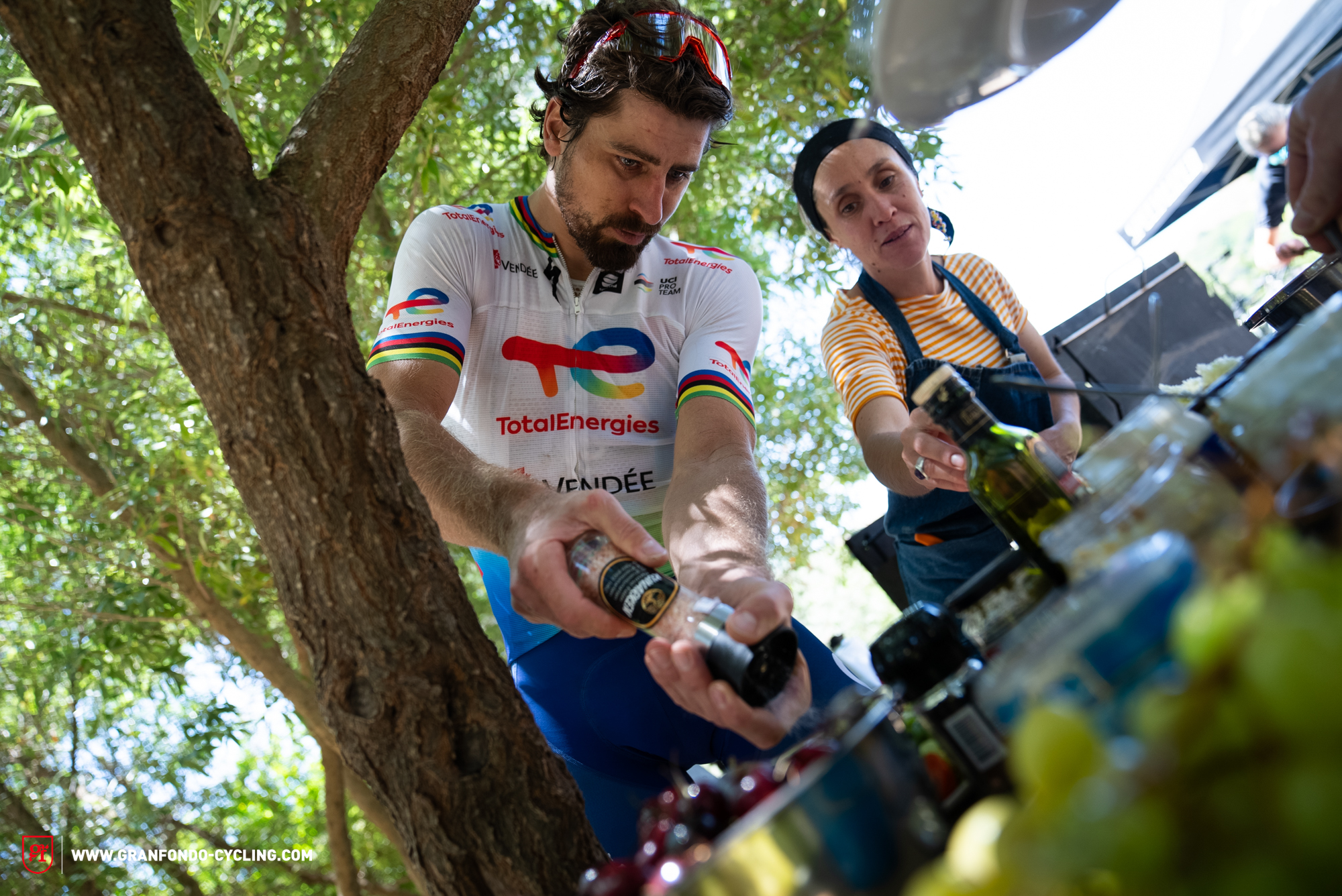
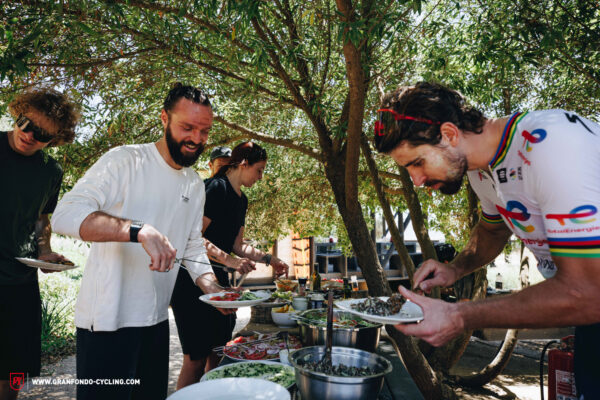
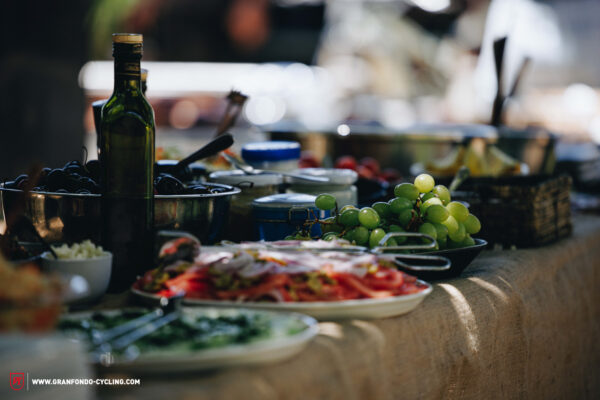
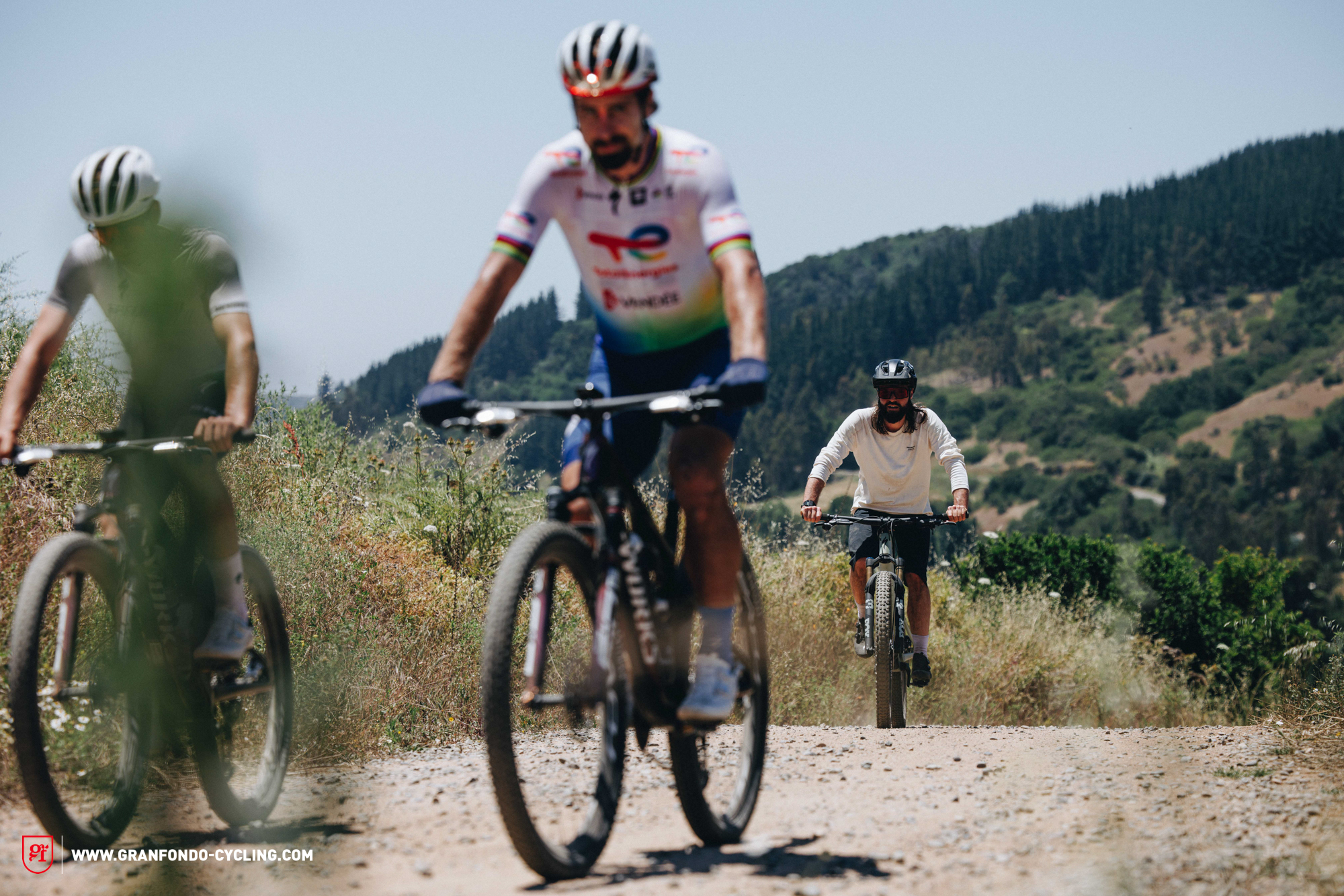
As Peter and Martín roll off at a leisurely pace, chatting away, I can feel the tension building. The first few metres are still easy. But as the incline increases, there’s no keeping up. To make matters worse, I chose the more gravity oriented and heavier Epic Evo, while the two pros are riding the Epic S-Works with electronic RockShox Flight Attendant suspension. The two of them kindly wait for me at the trail head when I arrive dripping in sweat! Stressed? In fact, the opposite is the case. Peter and Martín tell me to take my time. I didn’t expect that, but it’s probably due to what Peter’s longtime mechanic and friend Mindaugas Goncaras told me earlier: “Peter is way happier now. The past three years I didn’t see him this happy doing road races. And now: he changed his career path and I can immediately see the positive changes in him!”
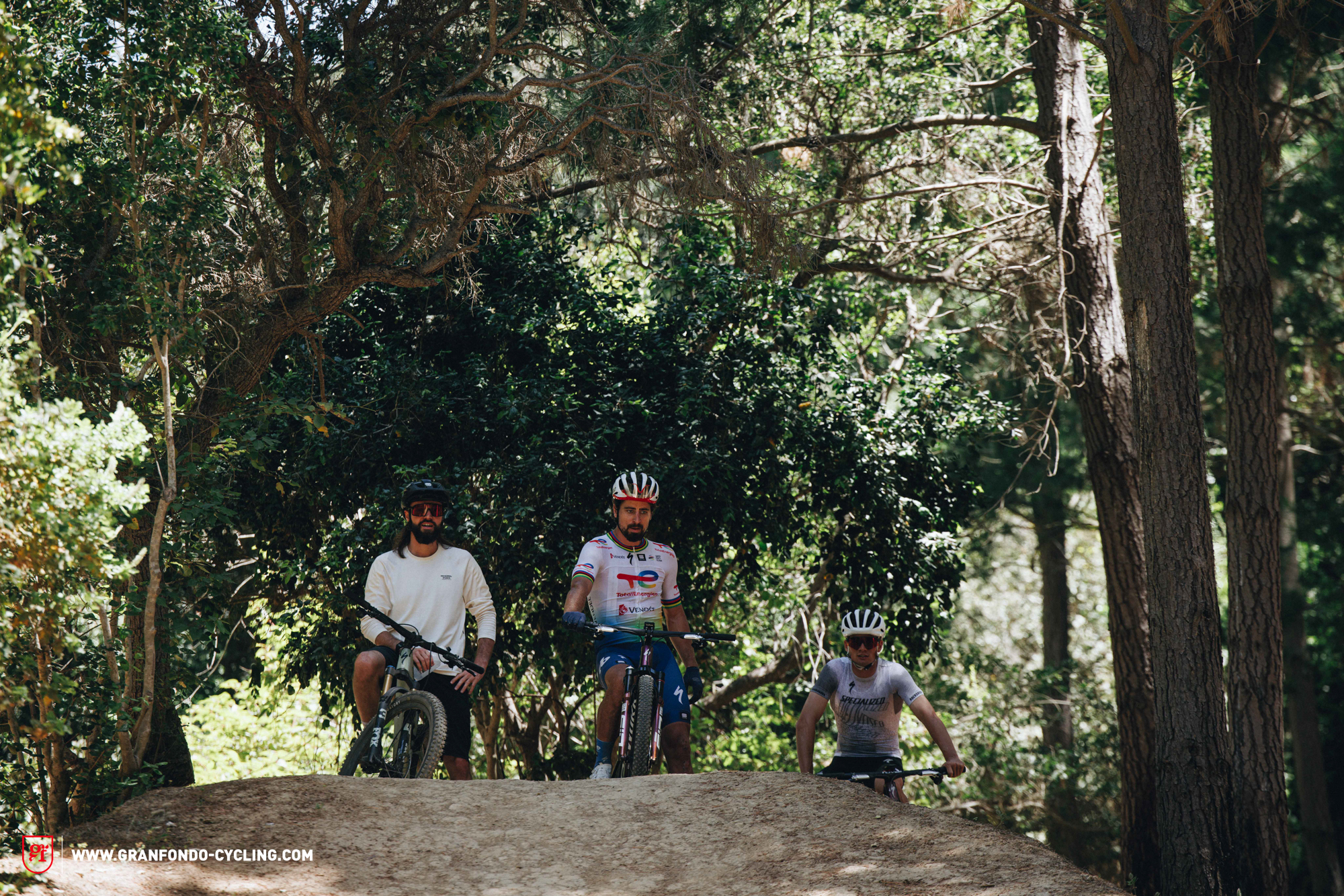
It’s only now that I realise: This isn’t base training at all. The descent seems to interest them much more than the climb. I can hardly finish the thought before we carry on going. Peter leads, and I drop in behind Martín – the fastest of the three of us must sweep the track from behind, after all. We blast down the trail at Mach 10, hitting gaps, railing berms, and hucking off drops – a true, adrenaline filled, roller coaster ride. Wooosh! Sweet!
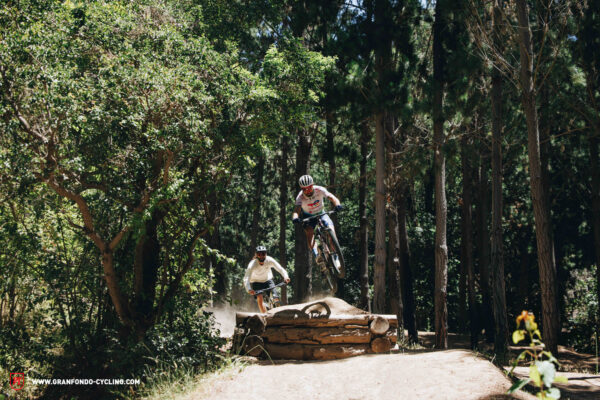
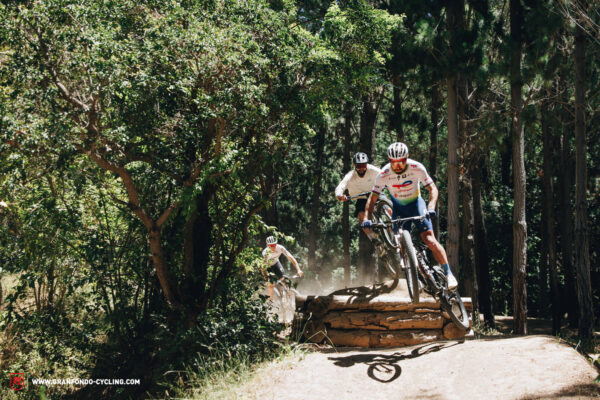
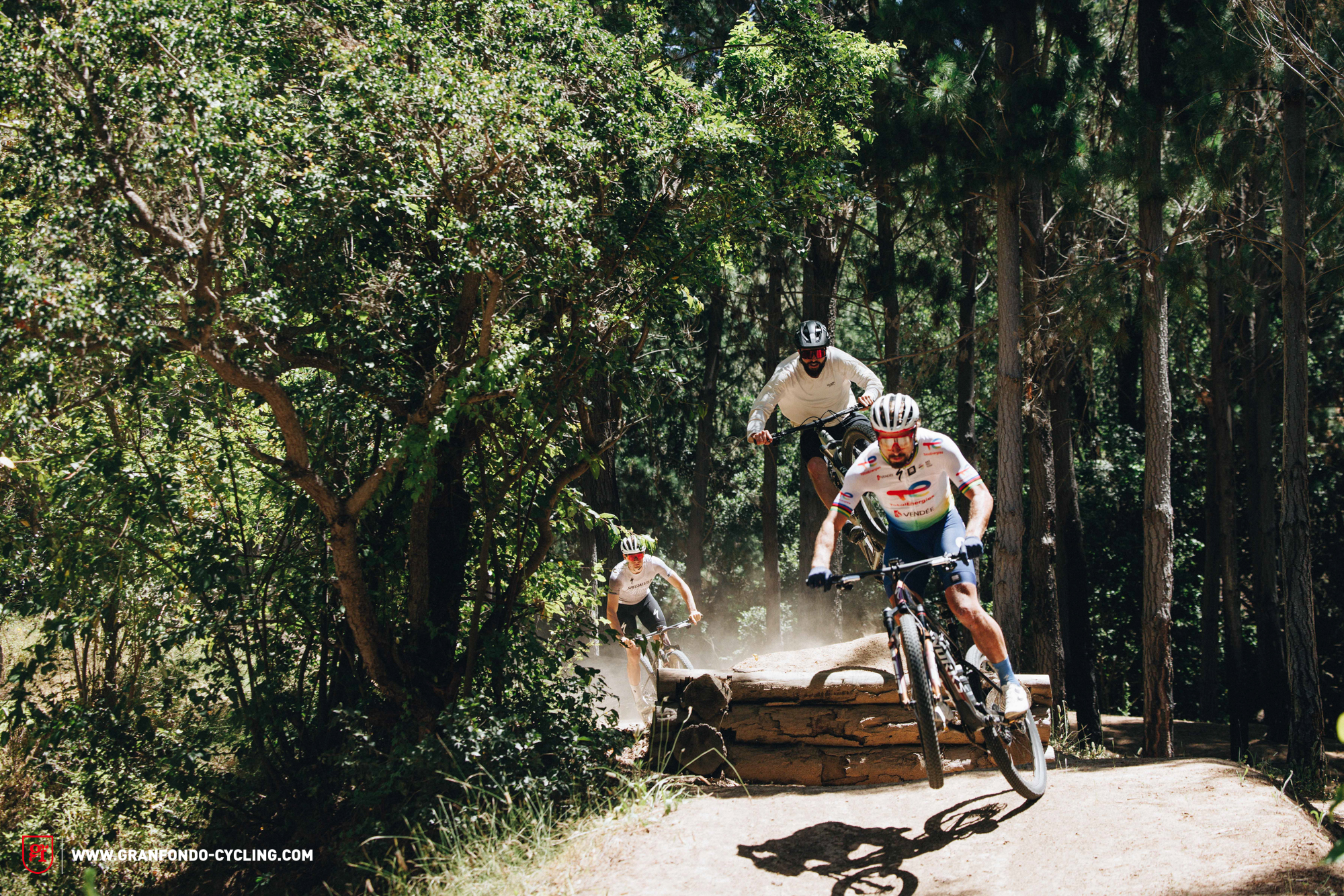
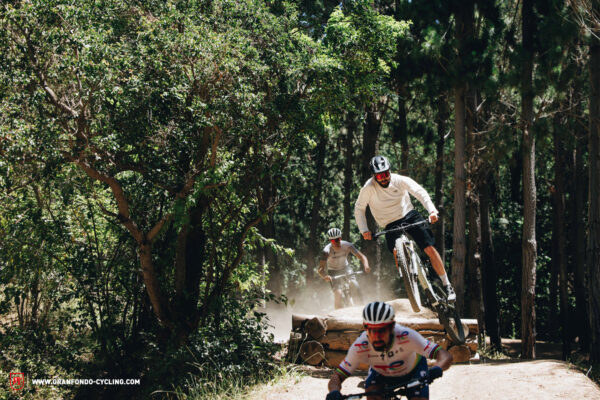
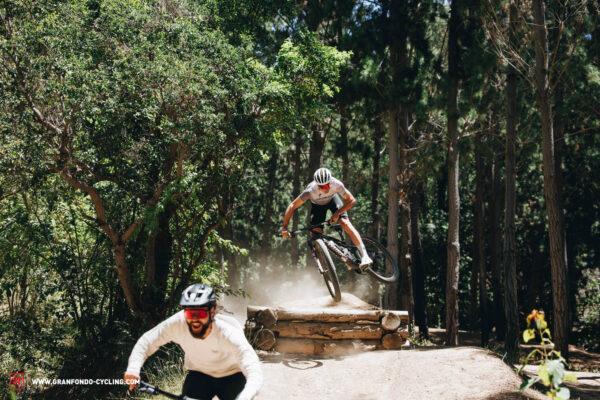
It feels like a party train with good friends. Like kids playing in the woods, showing off, and egging each other on in a friendly way. It’s all easy going. The stress of the Grand Tours and large team buses seem miles away. Only Peter’s TotalEnergies racing kit serves as a reminder of another world. A world in which he has made history and shook up the scene. No other cyclist has won the road world championships three times in a row, or won the green jersey seven times at the Tour de France. He’s won legendary races like Paris-Roubaix or the Tour of Flanders, as well as numerous other spring classics. Always relaxed, yet with a strong, cool, and likeable presence. No road cyclist has had as much of a rock star image as the 34-year-old Slovak. And he still has it. But his latest move has shown his true greatness and champion qualities – not just as an athlete, but above all as a human being.
Peter Sagan interview 2024: MTB & Paris Olympics
We spoke with Peter, Martín, and Mindaugas Goncaras, Peter’s longtime mechanic.
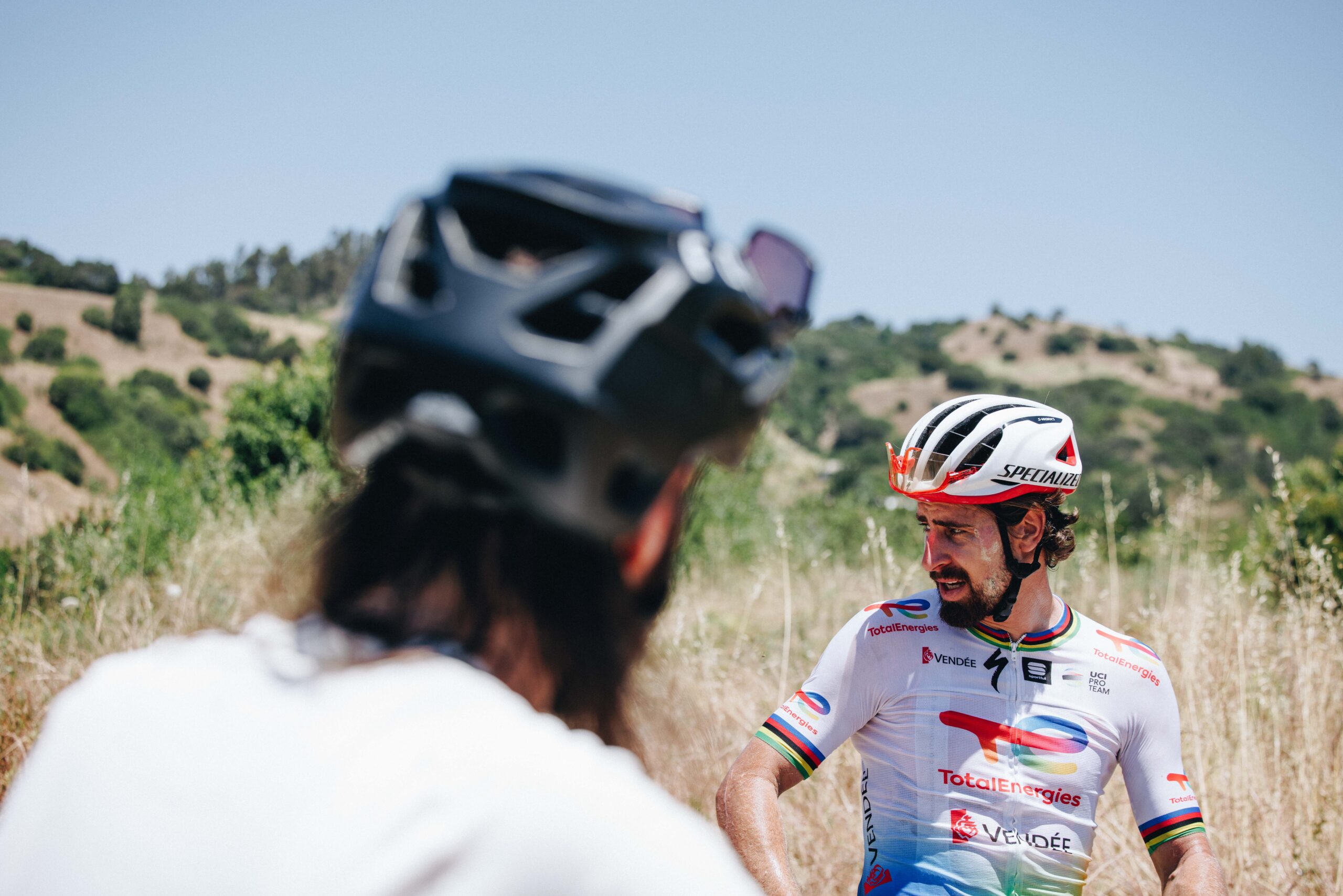
GRAN FONDO: Peter, if no one knew you and money was no object, what would you do?
Peter Sagan: I would do the things I did as a kid. Ride my mountain bike. I always wanted to try motocross but we didn’t have the money to buy a moto, and all the equipment. And MTB was the safest way to do what I wanted to do. And I was always going after that. I read everything I could about MTB. I didn’t do that many races until I was a junior. In the World Championship, I was 8th or 9th, but at least I knew next year I was going to be better because everyone that beat me was a year older than me. But now, I’m always the oldest one. It’s always nice to be in an environment where there are young people.
GRAN FONDO:GRAN FONDO: How is riding with Martín? Is there something you can learn from him?
Peter Sagan: He saw my first crash, and after that he told me it is all about the head, and being confident. I like him and it’s also fun to train with him. It’s very nice.
Not being with old guys. It’s nice to be with young people, because they’re full of ideas and ways to see the world, and you can always learn something from them.
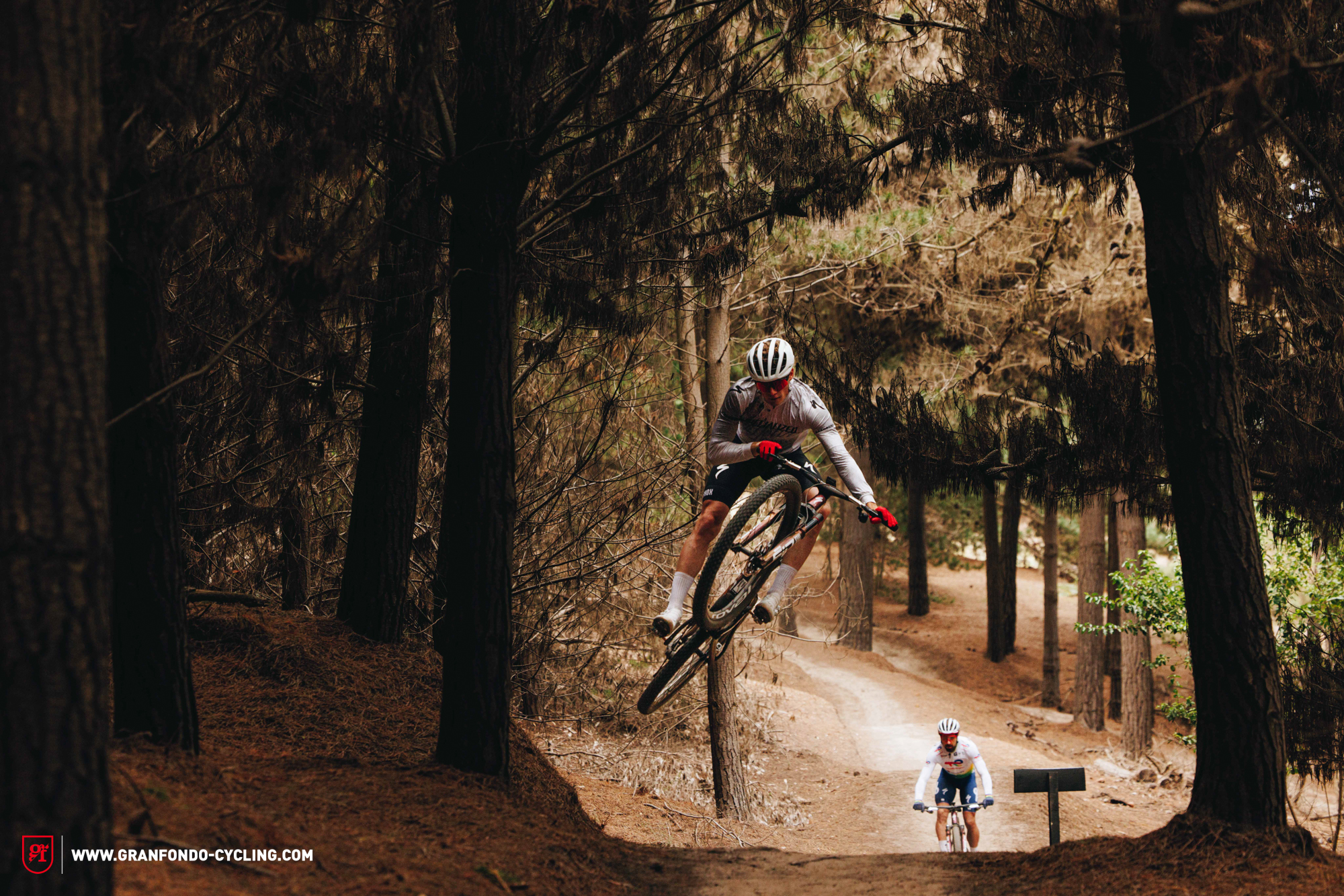
GRAN FONDO: Mindaugas, you’ve been Peter’s mechanic and long time friend. How is this new chapter of Peter racing MTB for you?
Mindaugas: I was completely unfamiliar with mountain biking. From where I am, it’s a flat country. We have mountain biking, but it’s not the kind of mountain biking that they do here. So for me, I am still in the process of getting into mountain biking from a mechanical side. That’s all fine. I’m good with that, but all this knowledge about suspension… (laughs) I’m just beginning to get into it, and there are new things that didn’t exist in the past ten years. I was working on Shimano equipped road bikes, and now it’s all SRAM. And RockShox suspension. It’s a lot of new things to learn, but it’s fascinating, it’s interesting. Some days you have so much information that you feel exhausted in the evening. Not physically but mentally, because you have so much information to process in a very short time. But I like it.
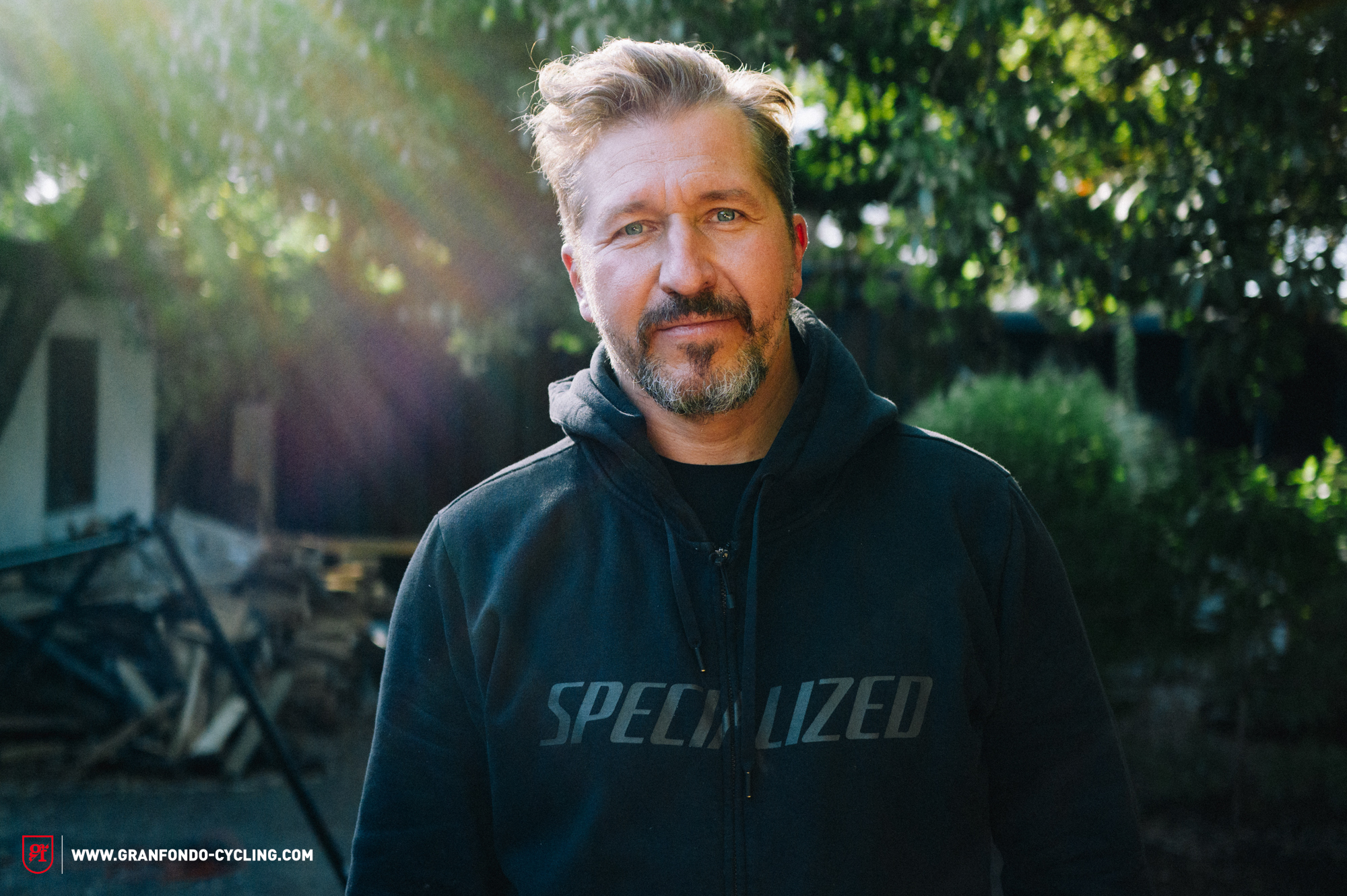
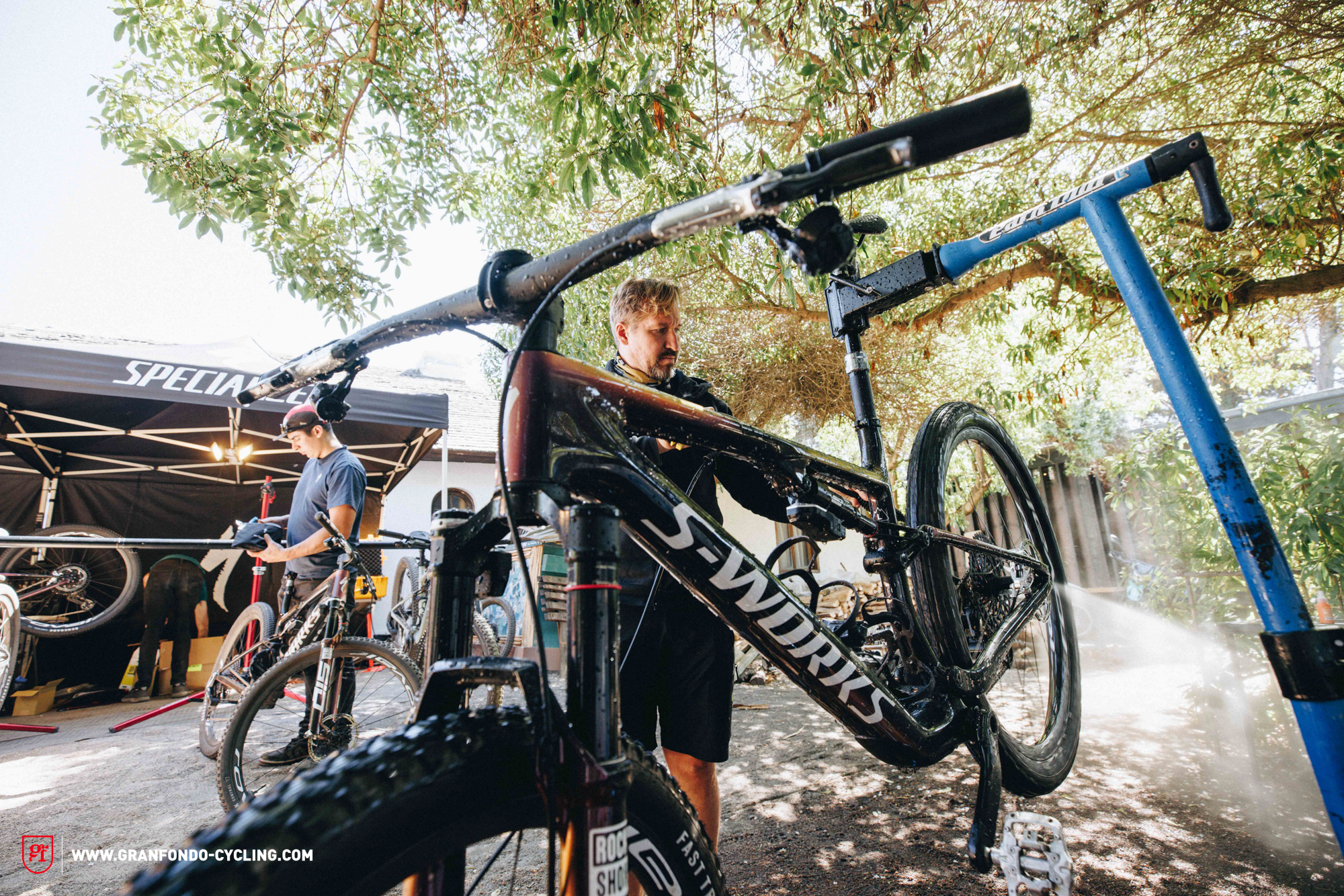
And for Peter it’s almost the same. He’s okay, he was riding mountain bikes, he’s familiar with a lot of the things. But stuff like the RockShox Flight Attendant is completely new to him. We sat here with an engineer from RockShox, and we talked for a long time. He explained everything to us, and how it all works in easier terms. We had some questions, and he had answers for us, which is what we needed and was actually really helpful.
„My soul is from mountain biking.”
GRAN FONDO: Peter, what drove your decision to come back to mountain biking?
Peter Sagan:My soul is from mountain biking. I’m doing this because I want to finish my career doing fun stuff. Last year, at the E-MTB Cross-Country World Championships, that was the experience that made me decide to come back to mountain biking. It was so much fun! It was a great environment, and Specialized just walked me into the team. I was surrounded by amazing people and everyone tried to help me with what I needed. They showed me how to ride the course, what’s important and what’s not. Because it was such a fun experience, I decided: One more year and then we will see about mountain biking. And now it’s just happening, you know.
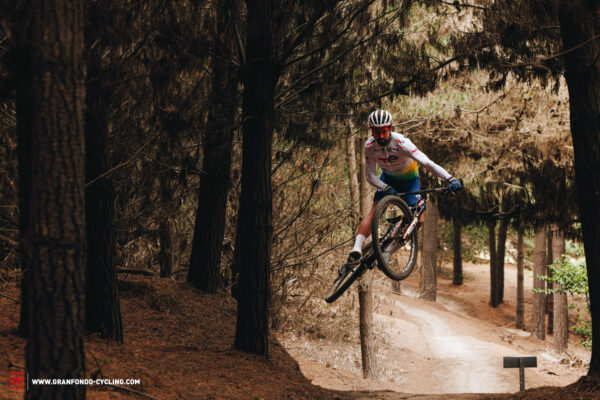
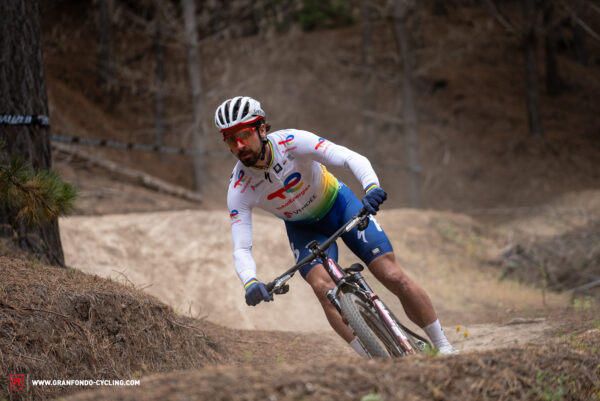
GRAN FONDO: Your heart’s been beating for mountain biking since your childhood, yet you ended up becoming a road cycling rock star. How come?
Peter Sagan: I mean, look at the road cycling world, it’s not that hard if you come from mountain biking. I started with mountain bikes, and for most of my life I only used road riding as part of my training for mountain biking. All my goals were focused on mountain biking. As a junior, I was also fourth in the world championships on the road, and I was second in cyclocross, but I won the mountain bike world championships. After that, I had the opportunity to join the Liquigas team, which became the Cannondale team later, and I was still continuing with both road biking and mountain biking with Liquigas. I talked to my coach – he has been my coach since I started as a junior. He told me: “Be careful with your decision. If they are going to offer you a place at Liquigas, that’s ok – but that’s big cycling. You’re going to do World Tour races, be in a World Tour team. In mountain biking, maybe you’ll never have that kind of money, but you’ll have success, and I can see you more in mountain biking than on the road. On the road bike, you blend in with everyone else, like a nobody. You’ll just end up as a domestique for somebody. But on the mountain bike, you can really win things, and be a World Champion, or Olympic medalist.” That was my dream, as a kid, I wanted to do mountain biking, not road cycling – that’s boring. But then the doors to the World Tour opened for me, and I got into road cycling. I think it was a good idea because, well, it’s never going to happen if you’re 34 years old – you’ll never be able to just jump into a World Tour team like this.
„I lost a lot of technique on the road, and now I have to work hard to get the technical stuff back.”
GRAN FONDO: How does this change feel for you?
Peter Sagan: It’s amazing to be here, and to feel this atmosphere I haven’t felt for a long time. That’s already great, and it’s a big motivation for me to be in an environment like this. It’s peaceful, you see. We are here, we see the ocean, the surfers, and it’s just beautiful (laughs).
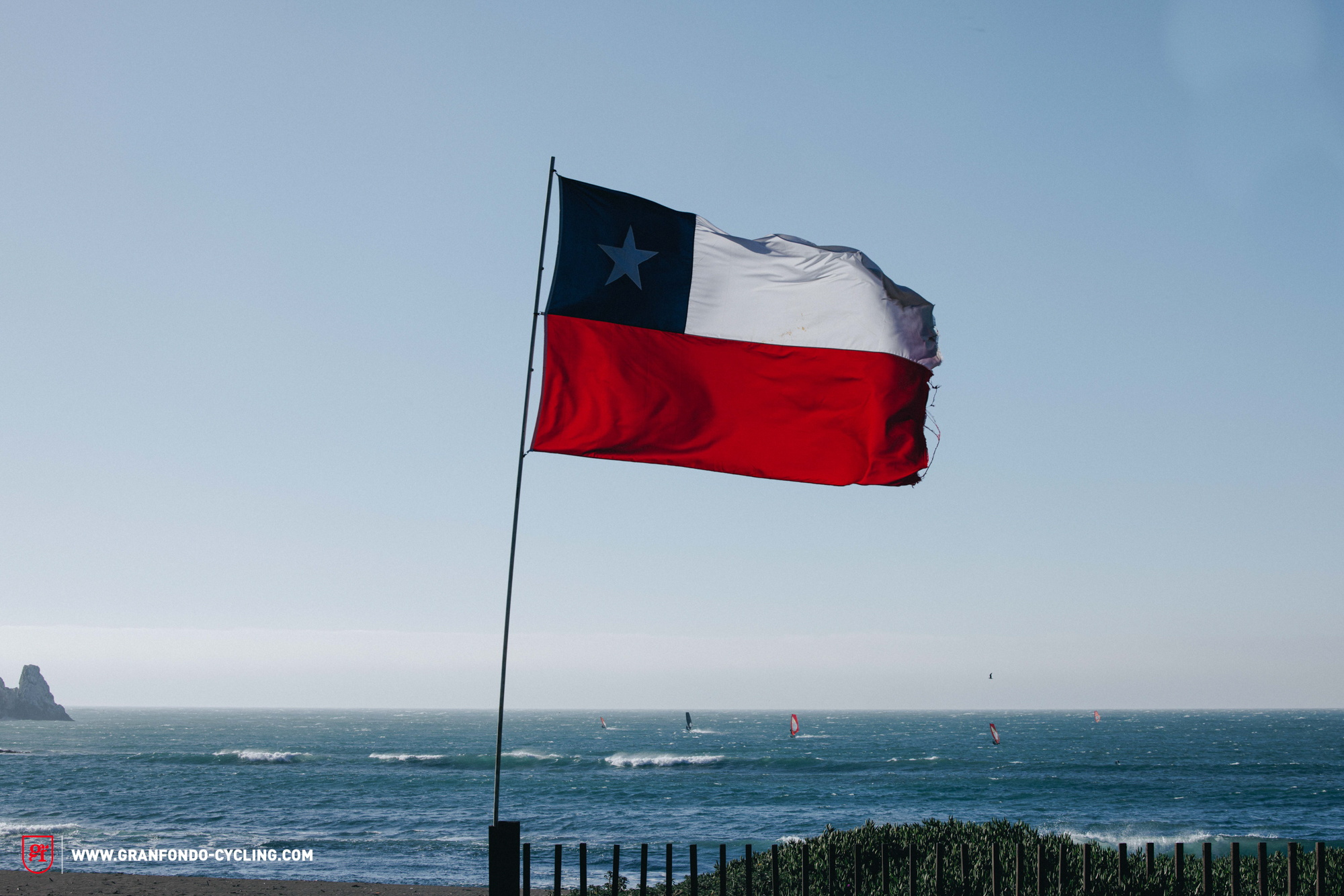
But I know that I have to work hard. I took part in the 2023 XC World Championship in Glasgow. It was after a tough period because I just came from the Tour de France, and the Road World Championship. I had no preparation and just got on my mountain bike 3 days before, thinking I was going to be in the top 10. It opened my eyes because it’s not that easy against specialist mountain bikers.
In MTB, when I was a junior, I was good at downhill. I wasn’t the best because I had such great endurance, but because I dropped everyone on the downhills. They would catch up to me on the climbs, then I caught them again. Lap after lap, they got weaker and then I won the race because I was good technically. But now, in MTB I am the worst one technically. I have to practise a lot, and everyone is at the top level now, you know. I lost a lot of technique on the road, and now I have to work hard to get the technical stuff back. I’m in the gym a lot, and on the bike for endurance. MTB is a totally different kind of effort than on the road, because it’s to the maximum from the start to the finish. You can’t recover uphill or downhill. On the road, you can recover a little bit on the flat parts. Uphill is suffering, but on the downhill you can maybe recover a bit more, but in MTB, I can’t recover if I’m not good technically. I have to say, the confidence I had before, the way I could relax downhill, is gone. Now everything is new.
With everything I did on the road, I’m very thankful to my main sponsors Specialized and 100%. They’re supporting me with this project and my dream that I can continue maybe one or two years in mountain biking, and try to qualify for the Olympic Games in Paris. I have no expectations. Whether I’m going to be in the top 5, top 20, top 10 – I don’t know. We will see after the race. I just want to do the best, athletically, that I can do. And I know that all this comes with the experience of racing, spending time on the mountain bike, having fun with great people – the great group Specialized have created.
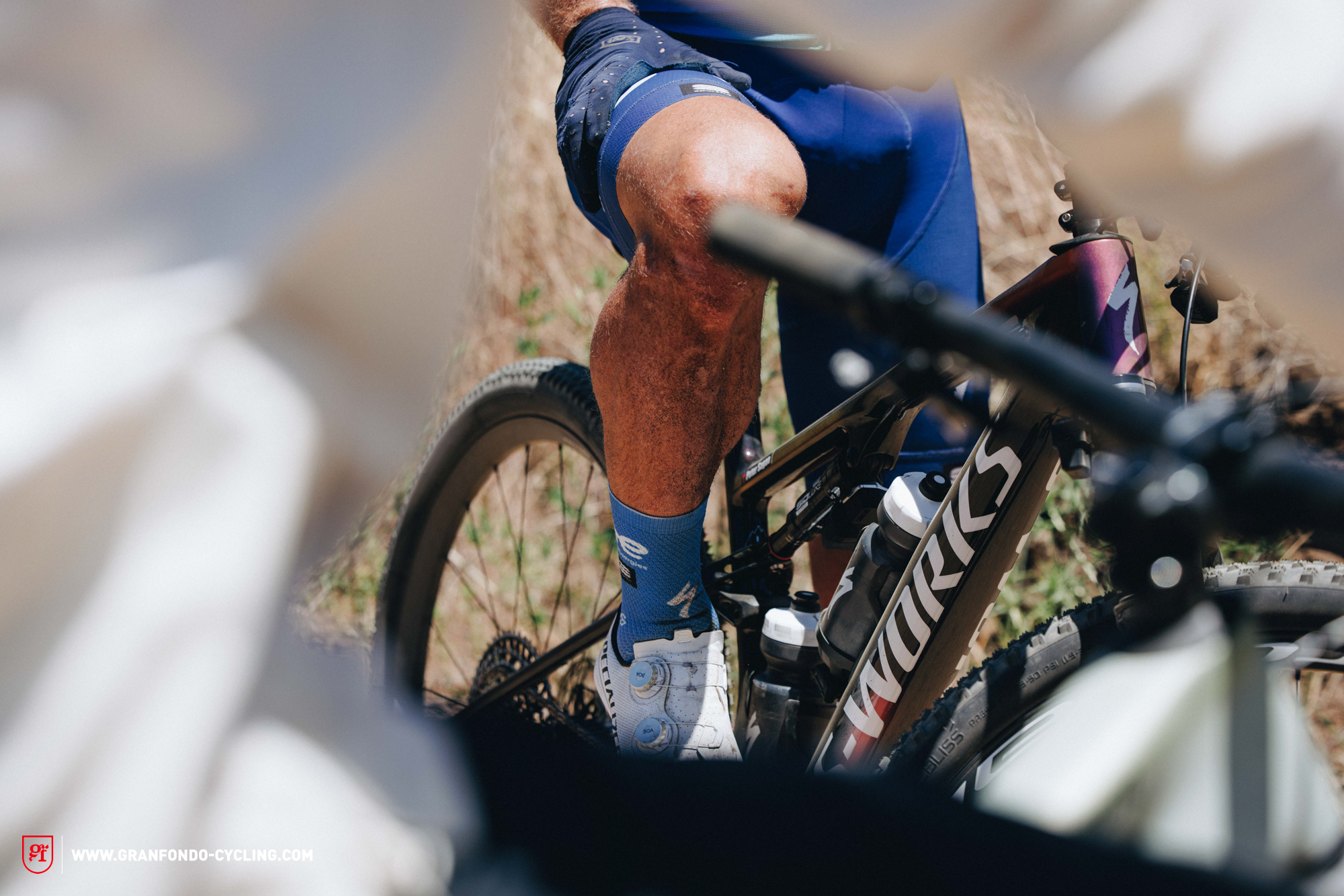
GRAN FONDO: Peter, how much has mountain biking changed in your eyes?
Peter Sagan: I raced the XC Olympic Games in Rio de Janeiro in 2016. I did one month of preparation without racing. I spent one month doing altitude training on the mountain bike – no racing, no experience – and I just went to the biggest event of mountain biking. I started well, but after I punctured twice, it was over. But that was also during the period of my best years. I just went for it, and relied on my muscles – I had good power, good numbers and stuff. But, you see, technically, I just ruined everything. After one lap, I punctured. Afterwards, I climbed back up, 20th, 15th, back into the top 10, and I kept going like that. But after I punctured again, I lost a lot of positions again. Well, now it’s also different because mountain bikes have changed so much from 2016 to now. It’s another eight years. I see mountain biking now, it’s a completely different world from what I saw eight years ago.
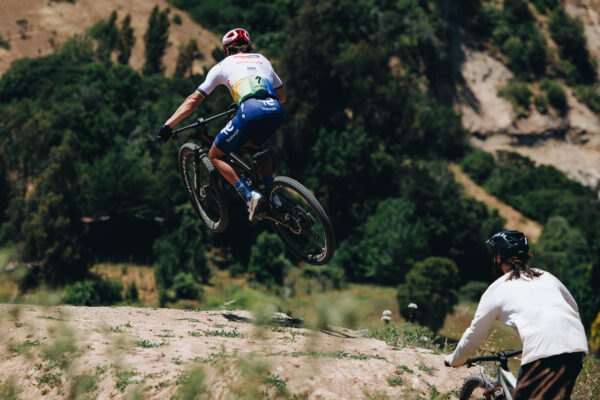
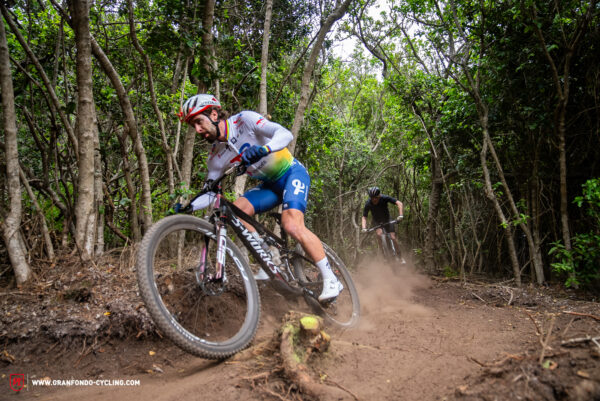
The bikes, the trails, the circuits, and racing style, everything’s changed. I have no expectations. That could be my strength. But then again, I have no experience.
But I know it’s going to be a tough year, you know? Yeah, it’s going to be a very tough year… But I try to have fun at least. Maybe mountain biking isn’t really that fun, because you have to live the athlete’s life. You have to sacrifice a lot of days away from home, travelling for races – it’s the same as on the road.
The only difference is you’re not going to have 21 stages one after the other like during the Tour de France. But in the end, you’re going to be away from home for a month because you have to go from one race to another. There’s no time to just hang around – you have to be in the right place for the next race. The travelling and the athlete lifestyle is going to be almost the same. I have to learn new things about mountain biking, though: suspension, tire pressures. Technically, I have to be much better, that’s for sure.
GRAN FONDO: Yo Martín, how about you? How has cross-country racing changed in your eyes in recent years?
Martín Vidaurre: Many people think that cross-country racing is becoming more technical. But I say it’s the other way around. It keeps getting easier. The bikes are getting better and better and better – but the tracks actually stay the same. Nové Město, for example, has been the same route for 15 years or more. Back then we rode the track with hardtails, then with full-suspension, and now we’ve got full-suspension with Flight Attendant. It used to be much harder to ride the tracks. They’re not really building a lot of new sections or big jumps. I hope things get more technical again. I like it when you must really climb, but also have to think about everything technically. Not just going full speed and attacking here and there – your technique is just as crucial.
Of course, I also see the challenge that riders of different levels must be able to ride the same track safely. Bigger jumps may not be a problem for the top men, but further back in the field, the world looks very different when you’re exhausted after dozens of laps. The same applies to women and juniors, of course. There are just so many different levels – and one track has to serve everyone.
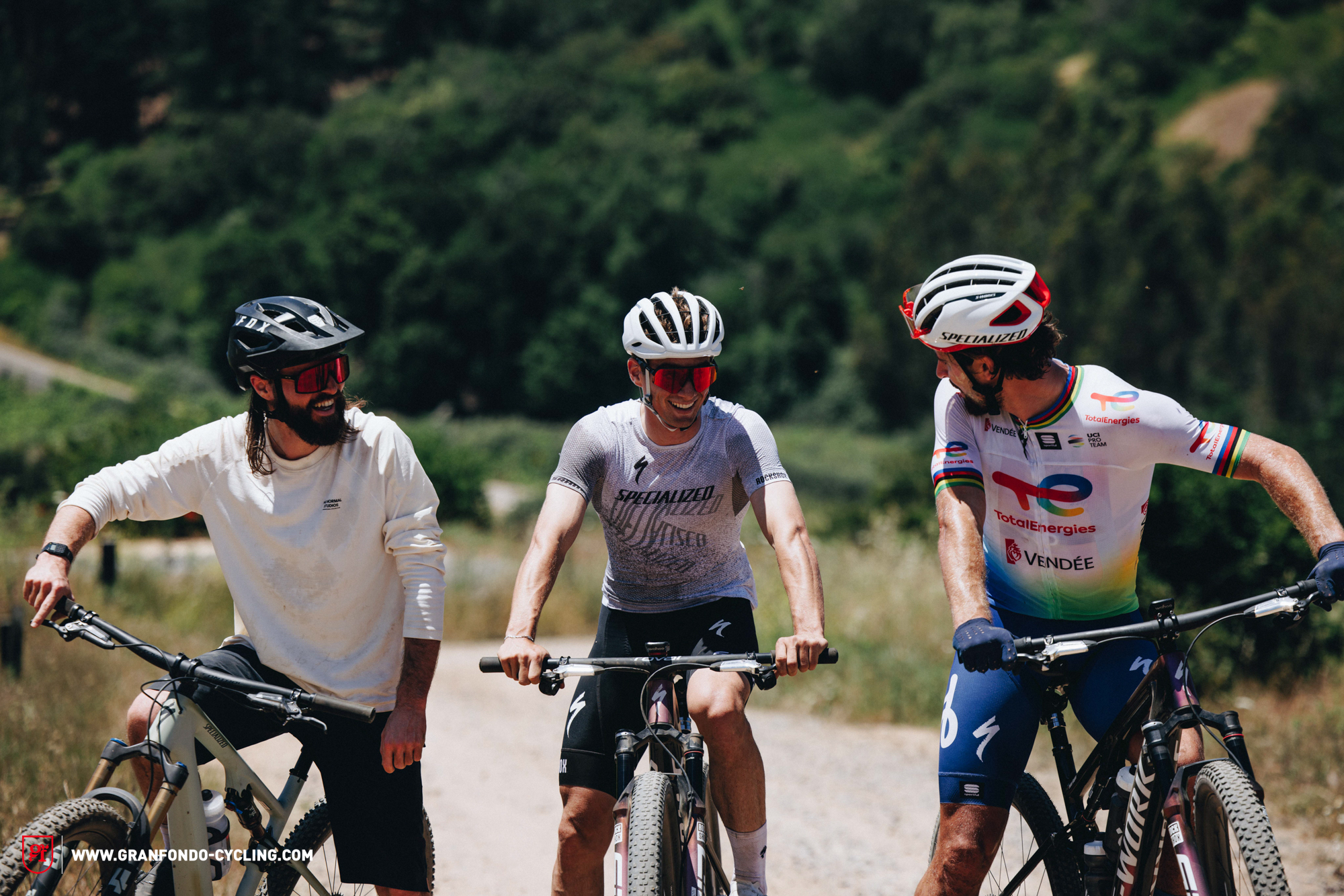
GRAN FONDO: Martín, how do you deal with the pressure to perform in cross-country?
Martín Vidaurre: I am Latino and have lived in Germany for 4 years. The expectations of how to behave as a professional were very different. For me, it’s one thing to be really professional and perform when you must. But that doesn’t mean I can’t laugh. Everyone thinks I’m just having fun. But the sport is not like that. It’s actually really hard. You have to train a lot. And sacrifice a lot. And that’s what I miss sometimes. But there are so many people behind me. I have a whole country behind me. When I race World Cups, I represent Chile – that feels like a different responsibility. It’s brilliant and inspires me a lot. And that’s something I carry in my heart. My family is very into sports, too. And, of course, they’re also backing me all the way.
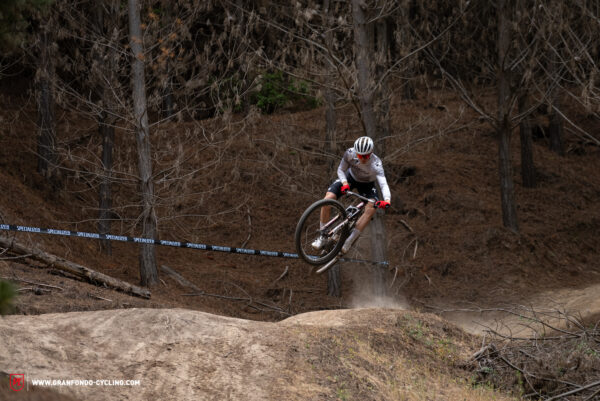
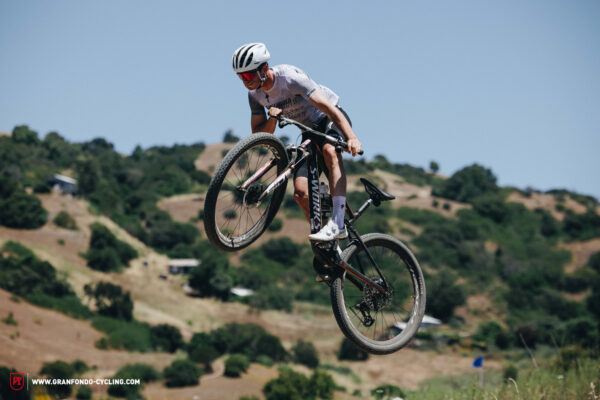
GRAN FONDO: What is your recipe for success?
Martín Vidaurre: Nobody taught me how to race. I taught myself, and found my own way to win races. I ride very cleverly and also tactically. I like to try new things. That helped me a lot. If you want to be better than the others, you can’t just do the same thing as everyone else. You must try something new and see if that works or not. I like to make mistakes and then learn from them.
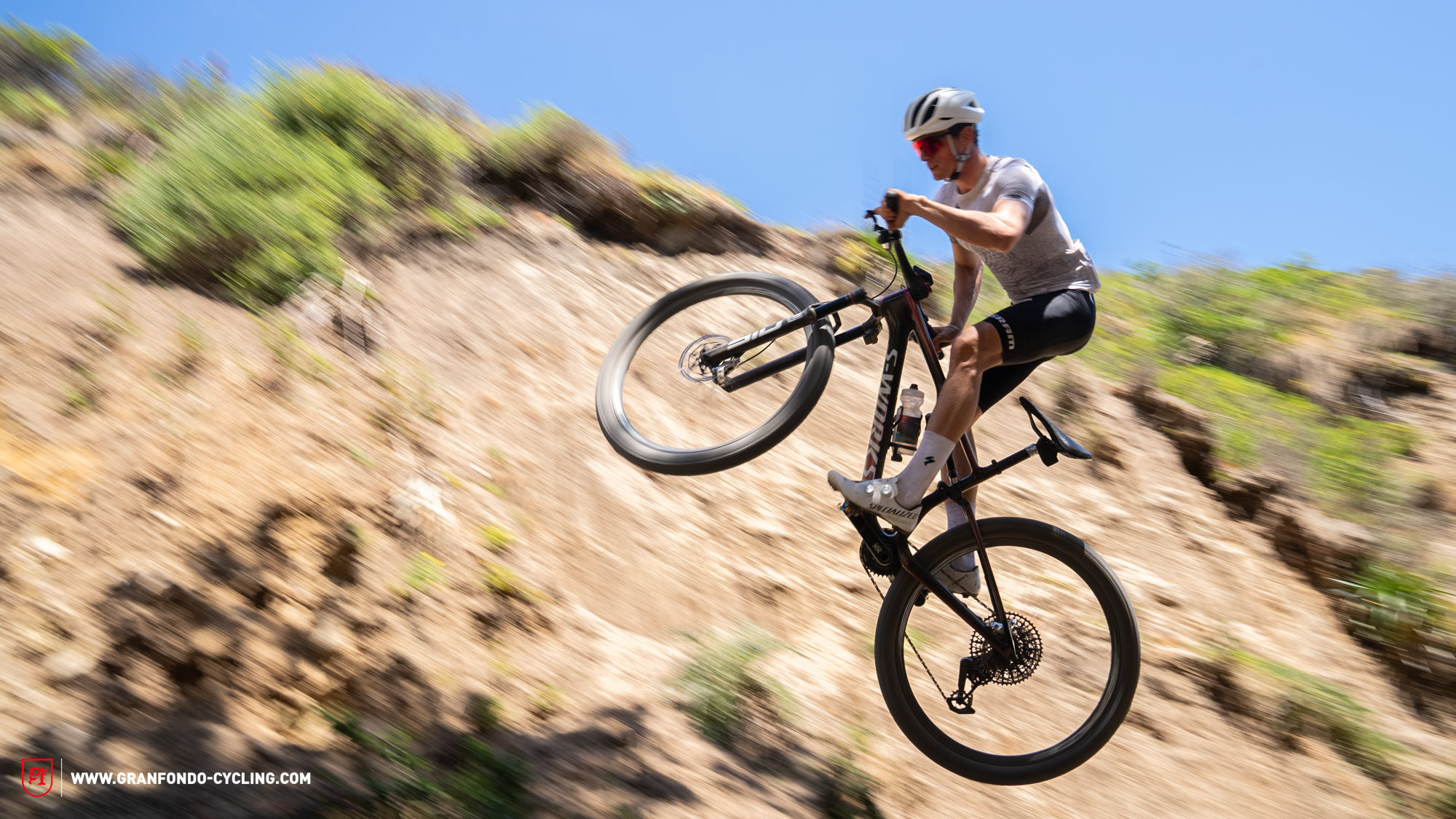
“Confidence is the most important thing, and getting it takes time.”
What were smart decisions or tactics – do you have an example?
Martín Vidaurre: Yes, for example, when I won my first world title, I was in first place in the race. I didn’t want to let the others draft behind me on the flat pieces. So I asked myself – what do I do, what do I do? You can’t just let yourself drop behind when you’re in first place. Then I said to myself, I’ll try something strange now. I pretended to have a puncture in the back and screamed: oh no, no. And then I let myself fall back and everyone thought I had a puncture and attacked. And then I stayed at the back of the others for a whole lap. After that, I was able to attack really well. That’s one of a few tactics that you can use as a junior that are a bit different. And they can help.
Or you ride at full speed from the start and try to stay at the front. If you don’t try, you won’t have confidence and without confidence you can’t actually do anything. Confidence is the most important thing, and getting it takes time.
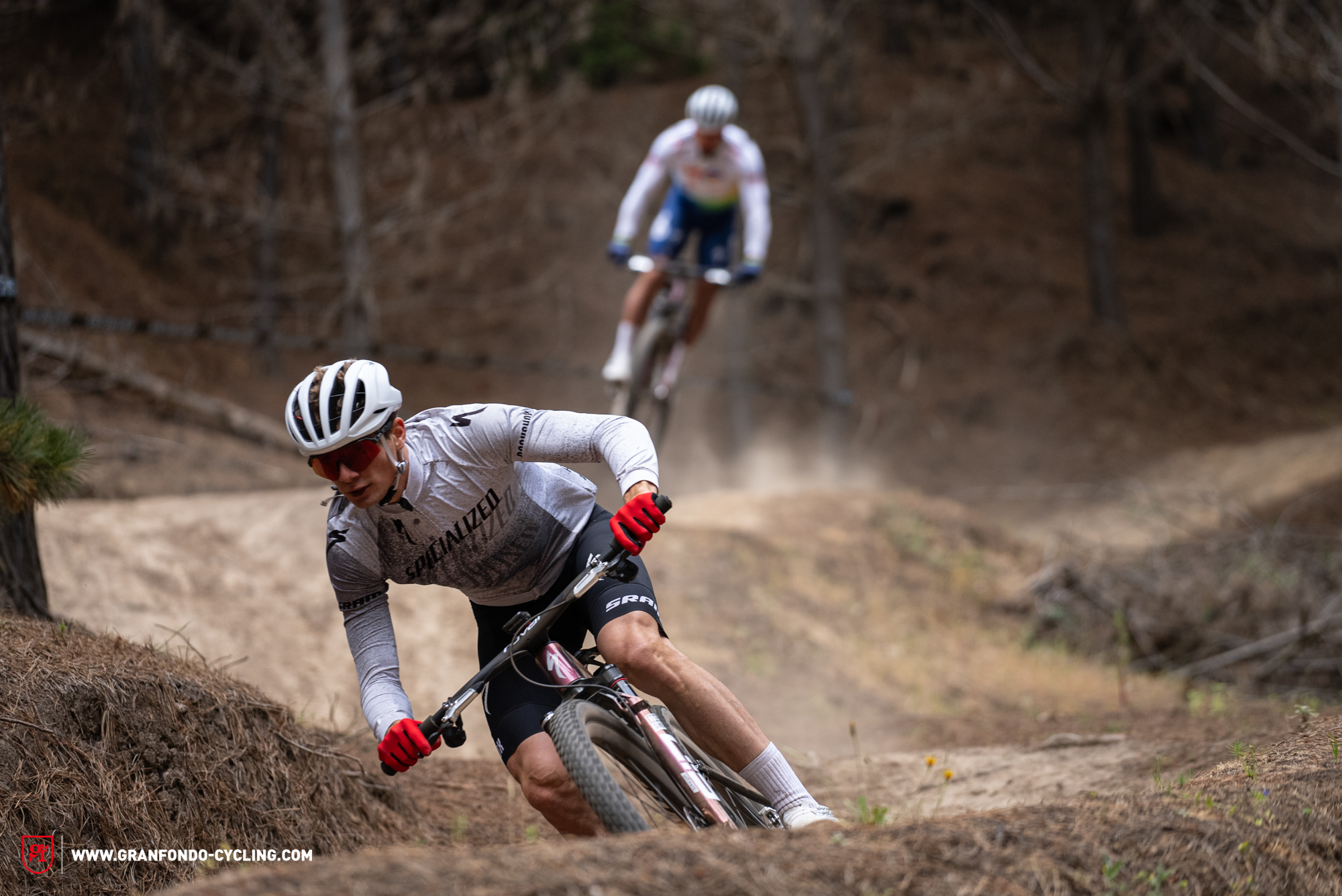
GRAN FONDO: How much confidence do you need to compete at the top level in the XC World Cup?
Martín Vidaurre: A lot! You need a good foundation by nature. And then it’s experience and mindset. In South America, I always won races as a child because the level was easier. And that’s where I learned a little bit about how to win races. You must always be sure that you are doing the right thing. And that’s not so easy, because there are many different training methods. And there are just as many ways to tackle a race. Success naturally builds confidence as well – for me, winning races is important. And if you win one, then you must take that and keep going. You must always think that you’re the best rider on the track. Not always in life, because I’m not like that in normal life. You can’t think you’re the best all the time. But if you’re the best on the bike, you have to believe in yourself. All of this takes time.
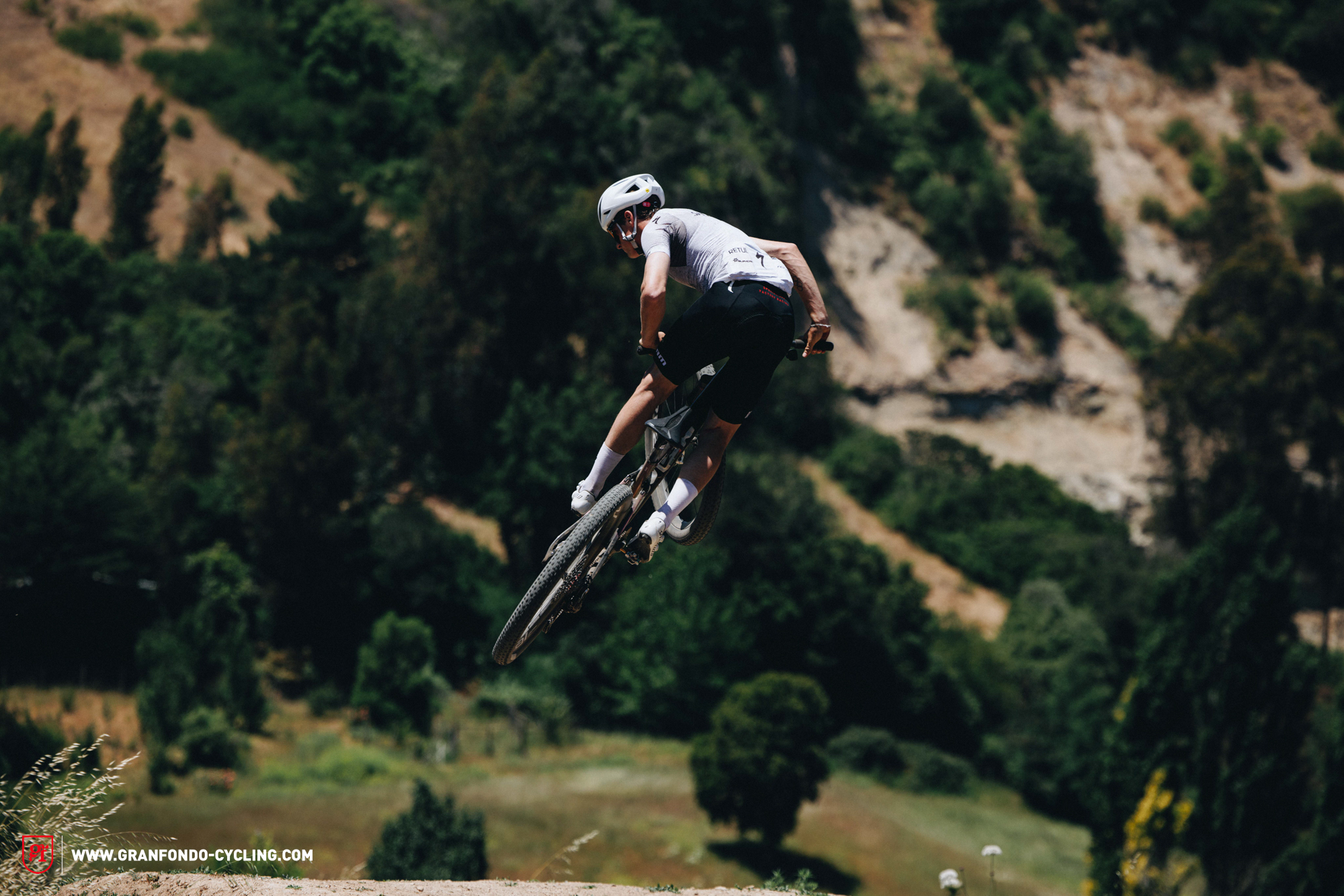
GRAN FONDO: GRAN FONDO: How much do you focus on yourself? How do you learn?
Martín Vidaurre: I am a person who is very open and likes to try new things. That’s how I’ve always learned as a child. In my first years [as an XC racer] in Germany, I copied something from everyone. I still do that today. Every rider has something to show that you can learn from. And if you learn something here and learn something there, that’s quite a lot in the end. You just leave what you don’t want. That has helped me a lot.
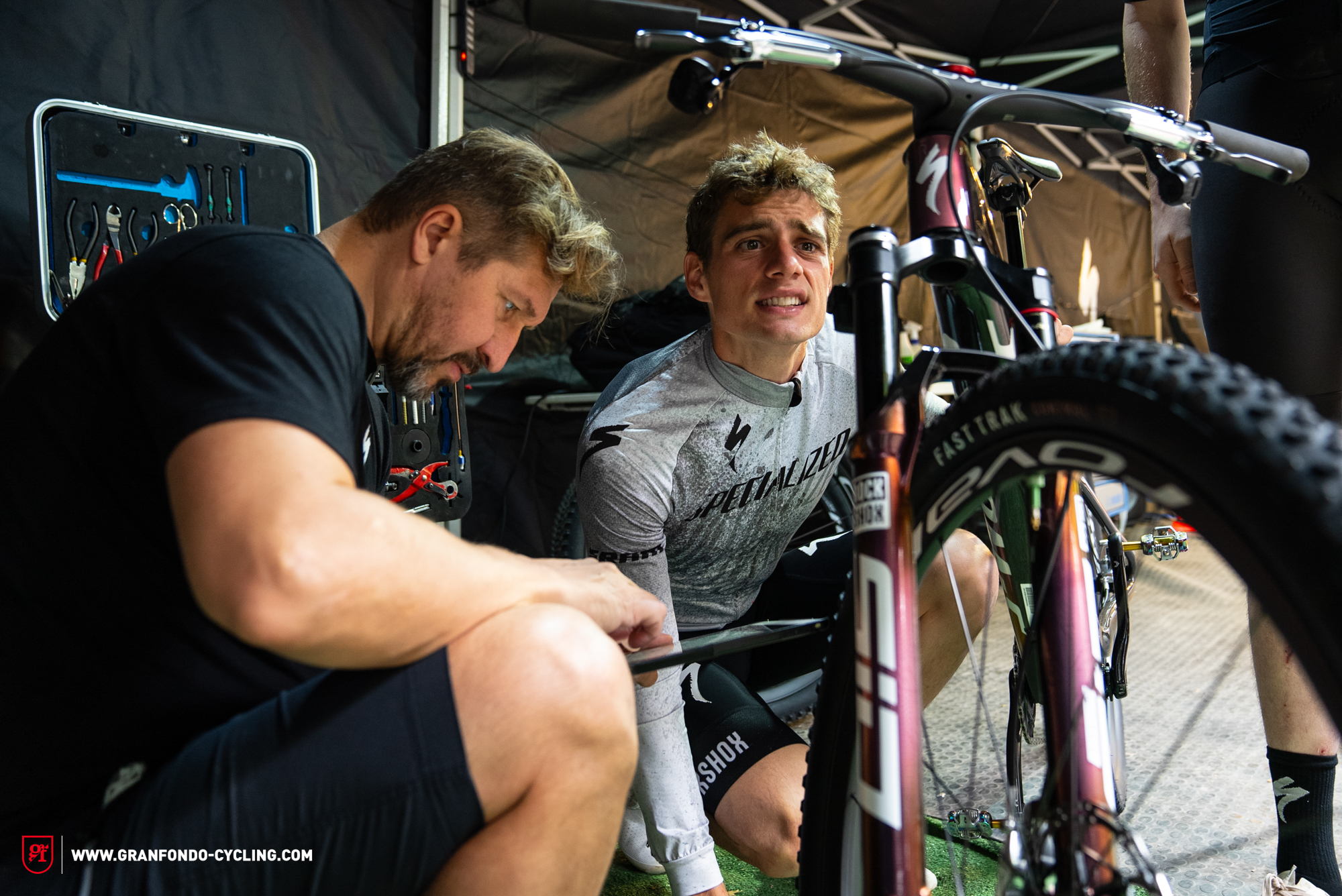
GRAN FONDO: What do you need to recharge your batteries or find your balance?
Martín Vidaurre: As I said, I am very open and love to have a lot of fun in everything I do. I always try to keep my pro life in balance. I don’t want to lose my own character. And that’s hard in professional sports because you always have to be very disciplined. I’ve been racing cross-country since I was a little kid. My whole family is very athletic. And when things get serious, I’m really focused and professional. But to recharge my batteries, I need balance. Being here in Chile is all I need. I love cars, motorcycles, and surfing. Stupid example maybe, but here you can drive a car without worrying about speeding fines. That’s like real freedom. You can also go north or south from here for a week and see no one. There you’ll have peace and quiet. You can do what you want. Be by yourself a little bit. Have time for me. I like that.
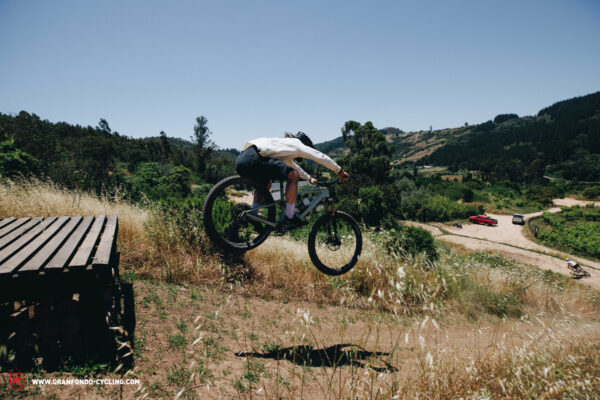
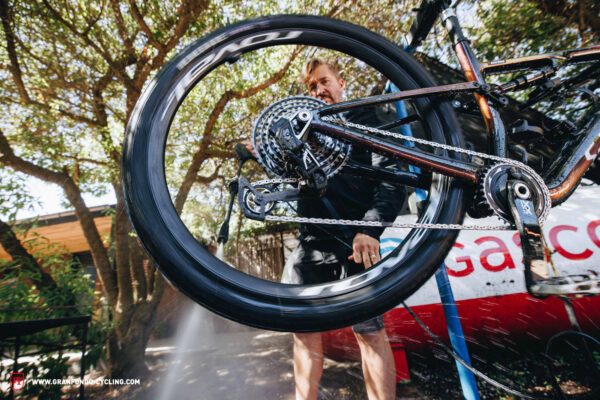
Teammates – What Peter Sagan and Martín Vidaurre can learn from each other
After a short breather, we’re back on the trail. I don’t have time to recharge my batteries. And I notice that I will soon struggle to keep up with the pace of the two pros. But then I realise how well these two exceptional racers actually match. One has what the other wants back. And the other has what the other is still chasing. On the one hand, you’ve got the young, witty Latino, who is already a national hero in his homeland and is bursting with fun, style, and a hunger to win, while also doing a great job of finding the right balance between professional competitive sports and just enjoying life. On the other hand, you’ve got Peter, one of the most successful and charismatic road cyclists of all time. An absolute rock star who, despite all his successes, has become anything but happier in recent years, now returning to his roots and starting to flourish once more. In this regard, he’s also trying to master the balance of fulfilment, fun, and professional competitive sports. To do that, he’s ready to start all over again, incredibly grateful, and almost humble – a true champion who doesn’t just shine on the podium!
With the millions in his account from his road racing days, Peter could simply have retired now. But real champions don’t just strive for achievements, titles, and trophies. They also want fulfilment. And this includes knowing when it is time for a change. Real success is living your truth and following your heart along with everything that inspires you. Peter knows that if he doesn’t follow his heart, he won’t find true happiness. This applies to exceptional athletes as well as to everyday folks like us.
No matter if sports, business, or relationships – what are all the successes, titles, and money in the world worth if you can’t look into the mirror in the morning with a grin on your face and say without hesitation: I’m doing exactly what I want to do. And the “what” can keep changing, depending on where you’re at in life.
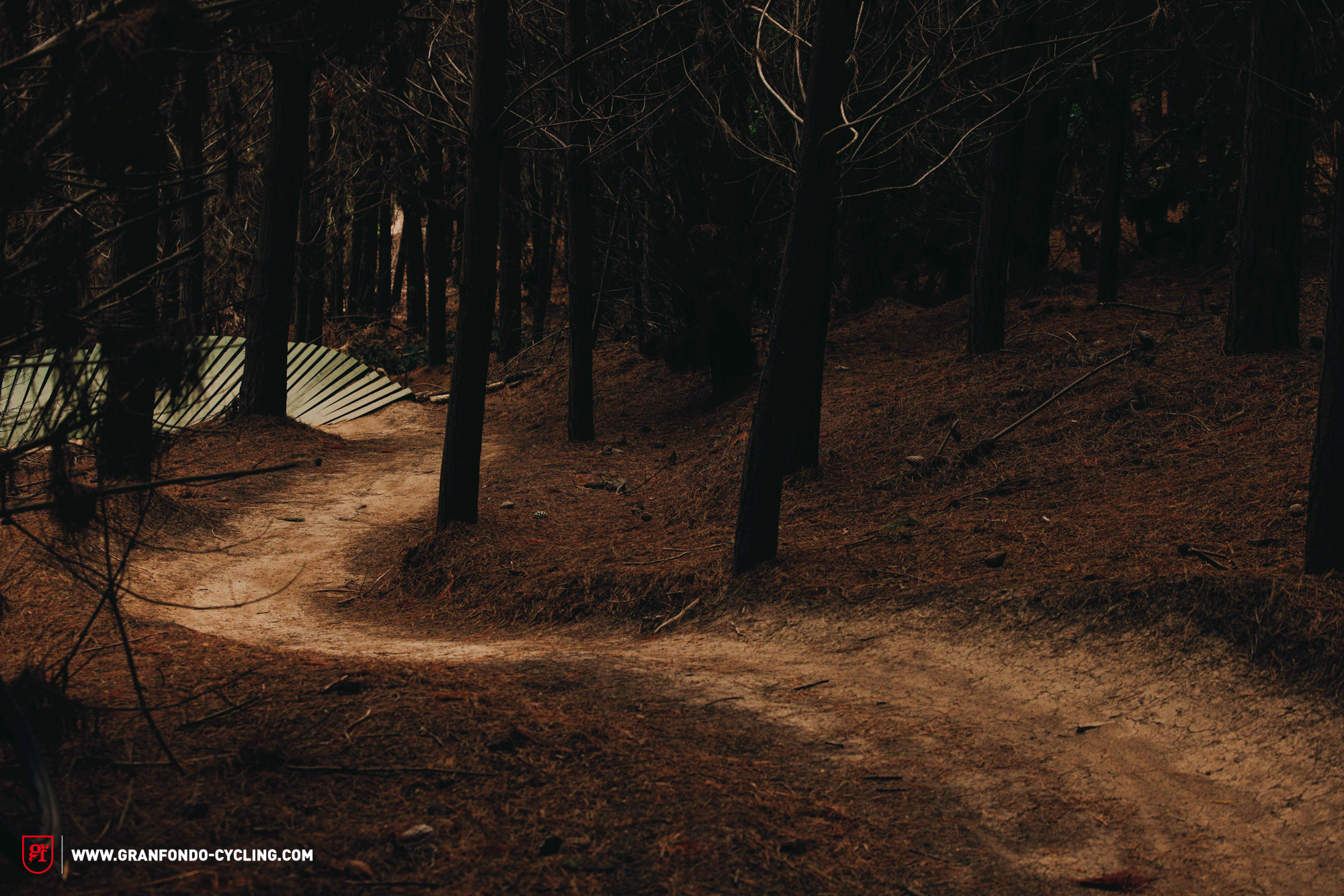
Our ride and conversations have shown the importance of balancing material success with personal fulfilment. And that the courage to change usually gets rewarded. Peter’s bold move to change disciplines shows that it’s never too late to take a new path, or return to your roots. Passion is the best compass because if you follow your heart and do what you really enjoy, you will inevitably come to a better place, even if it gets really hard at first.
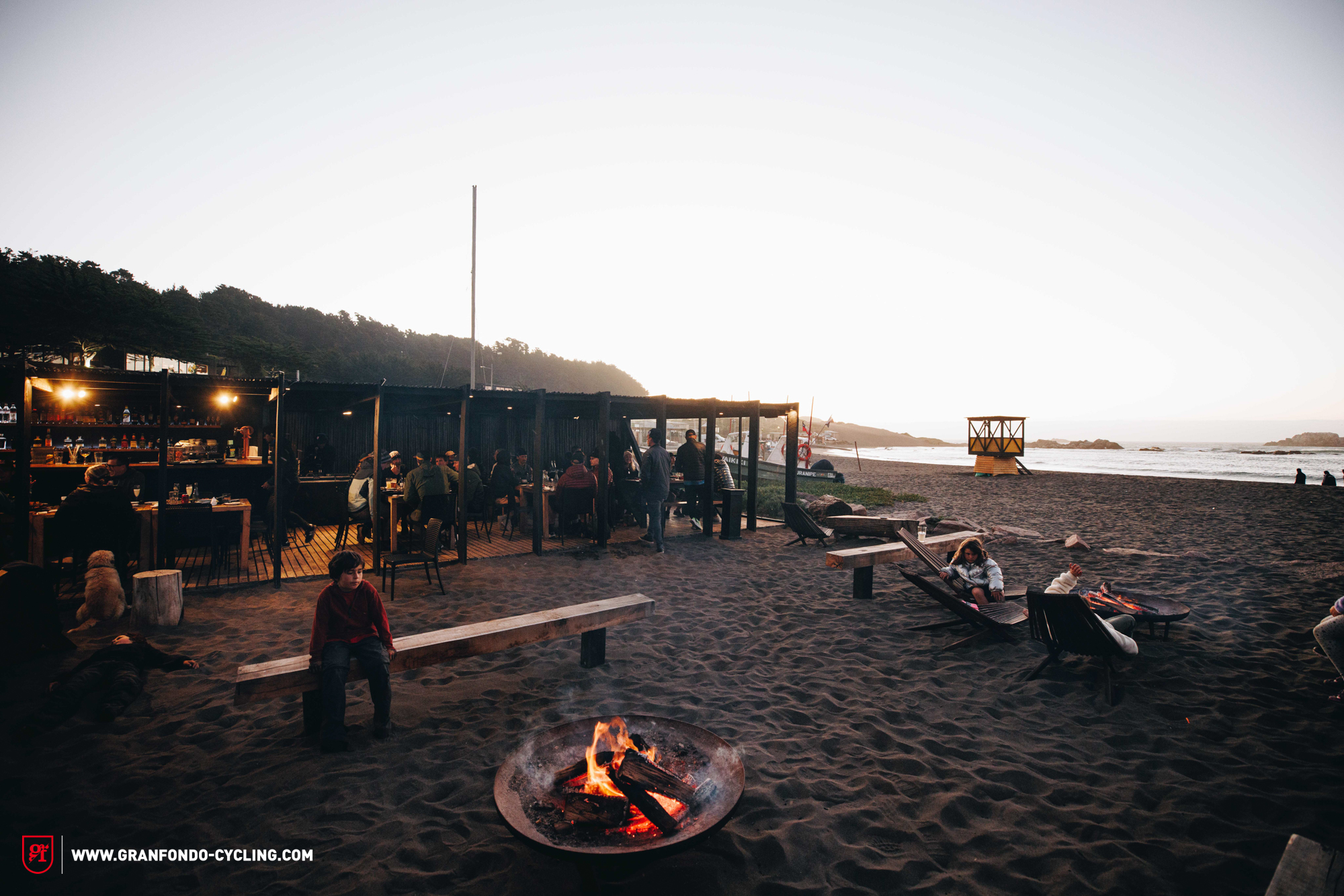
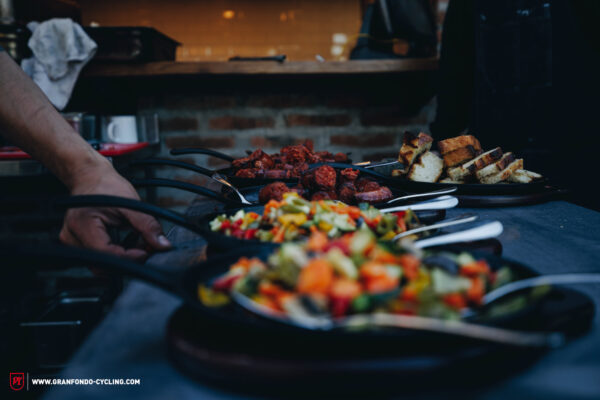
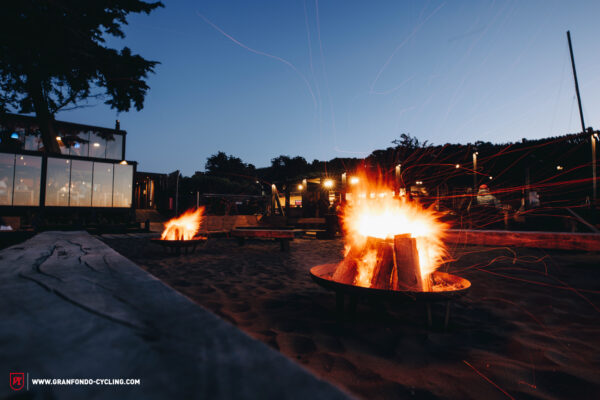
A classic training ride? Not at all! The day was underlined by delicious food, amazing trails, and jumplines, followed by a bonfire by the sea. Can life get any better than this? It’s not just us that had this insight, but probably also Peter – whose comeback is doing him a world of good.
What’s next? The trail will tell. And the decisions that Martín and Peter make. 2024 will be a year full of growth and development, filled with more fun, ease, and guaranteed success – hopefully both personally and professionally! Because when you find your (new) balance, things will inevitably get better! Note to self: this doesn’t just apply to exceptional athletes, but to all champions!
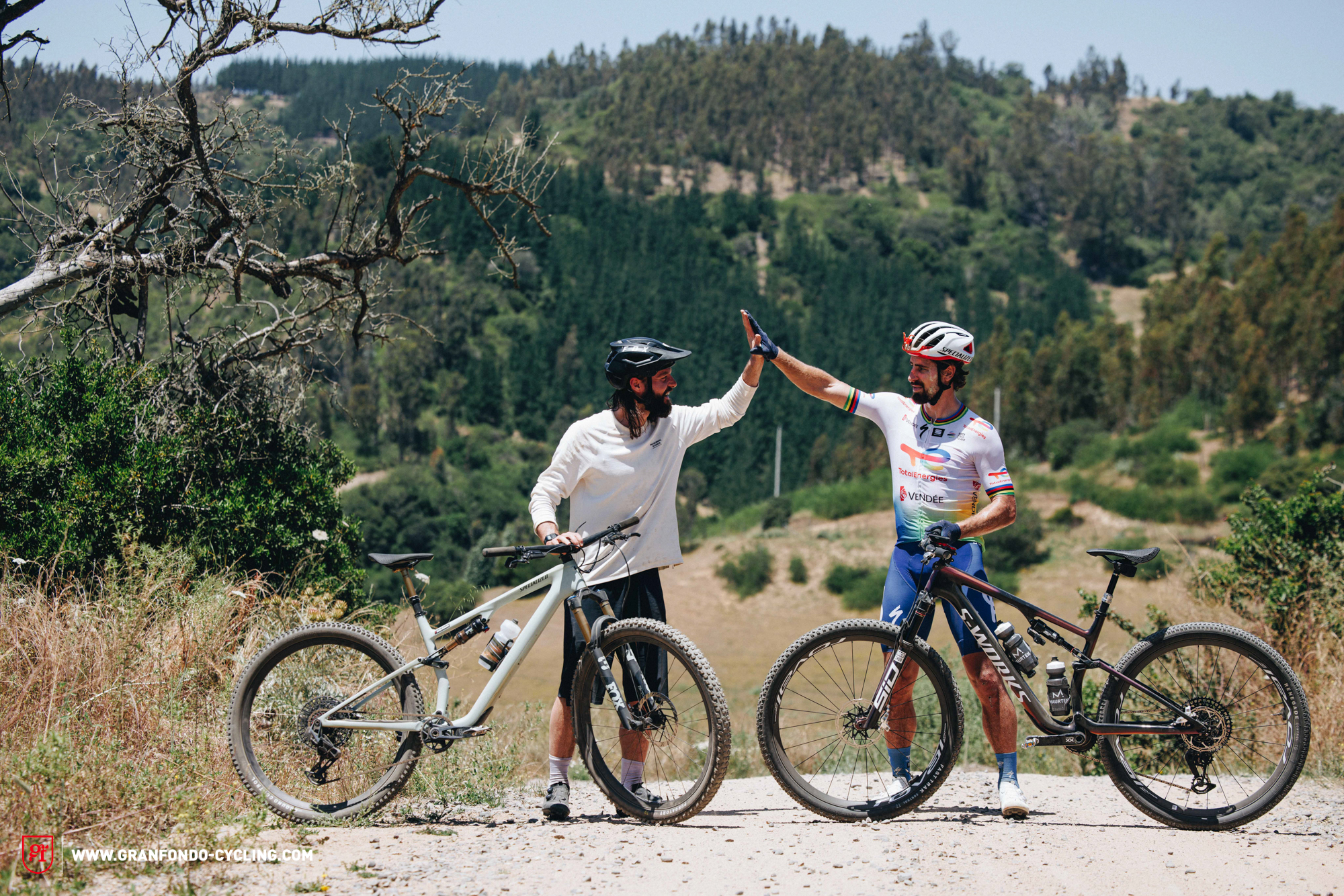
Did you enjoy this article? If so, we would be stoked if you decide to support us with a monthly contribution. By becoming a supporter of GRAN FONDO, you will help secure a sustainable future for high-quality cycling journalism. Click here to learn more.
Words: Robin Schmitt, Benedikt Schmidt Photos: Etienne Schoeman, Lukas Hammersley, Robin Schmitt


